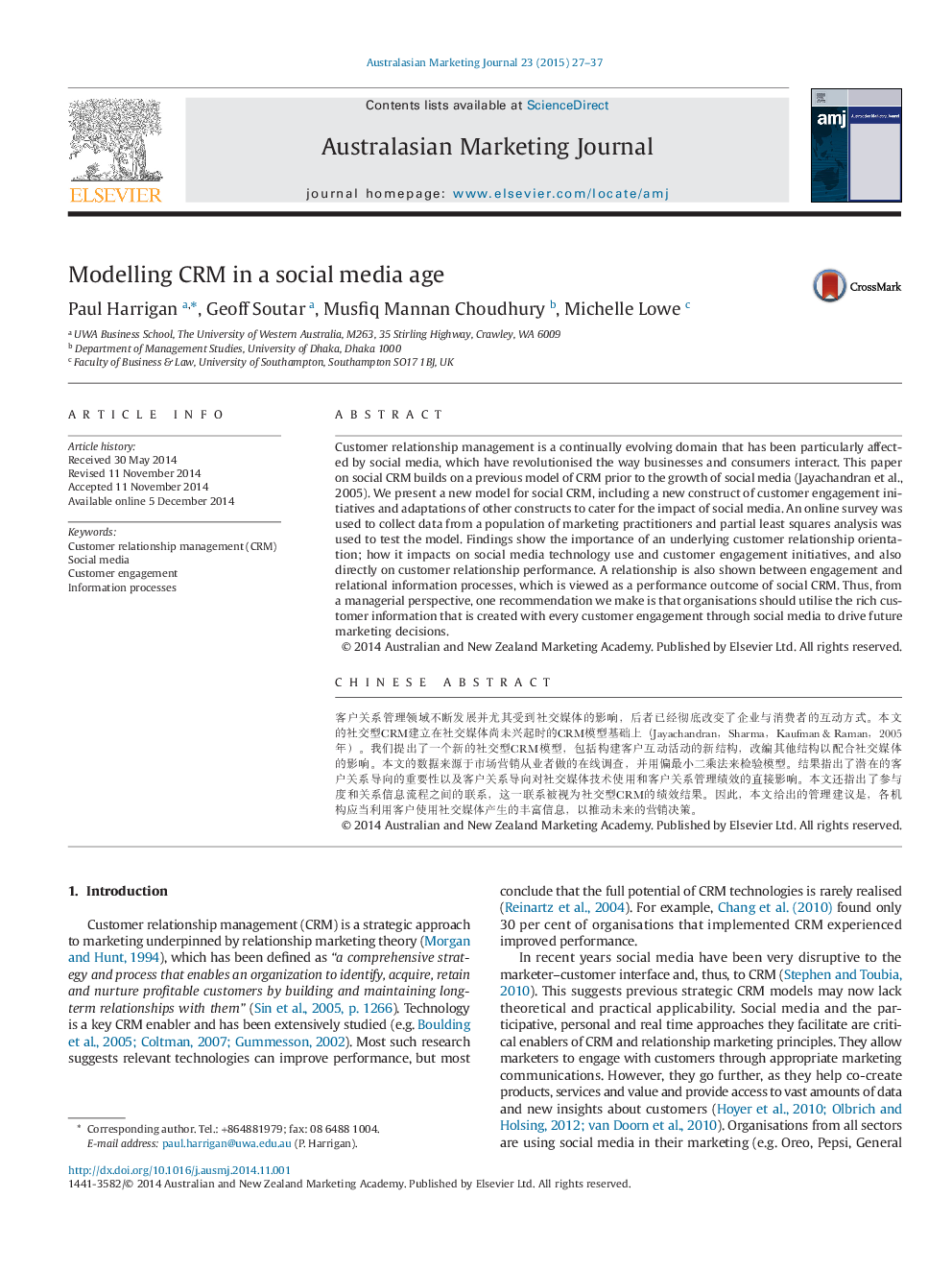| Article ID | Journal | Published Year | Pages | File Type |
|---|---|---|---|---|
| 1026991 | Australasian Marketing Journal (AMJ) | 2015 | 11 Pages |
•We model strategic social CRM through a range of five current, adapted and new constructs.•Social media technology use construct is new and measures the use of social media technologies.•Customer engagement initiatives construct is new and measures two-way organisation–customer interaction.•Customer relationship orientation and social media technology use combine to form dynamic capabilities.•Relational information processes are viewed as appropriate performance outcomes in social CRM influence customer relationship performance.
Customer relationship management is a continually evolving domain that has been particularly affected by social media, which have revolutionised the way businesses and consumers interact. This paper on social CRM builds on a previous model of CRM prior to the growth of social media (Jayachandran et al., 2005). We present a new model for social CRM, including a new construct of customer engagement initiatives and adaptations of other constructs to cater for the impact of social media. An online survey was used to collect data from a population of marketing practitioners and partial least squares analysis was used to test the model. Findings show the importance of an underlying customer relationship orientation; how it impacts on social media technology use and customer engagement initiatives, and also directly on customer relationship performance. A relationship is also shown between engagement and relational information processes, which is viewed as a performance outcome of social CRM. Thus, from a managerial perspective, one recommendation we make is that organisations should utilise the rich customer information that is created with every customer engagement through social media to drive future marketing decisions.
Chinese abstract客户关系管理领域不断发展并尤其受到社交媒体的影响,后者已经彻底改变了企业与消费者的互动方式。本文的社交型CRM建立在社交媒体尚未兴起时的CRM模型基础上(Jayachandran,Sharma,Kaufman & Raman,2005年)。我们提出了一个新的社交型CRM模型,包括构建客户互动活动的新结构,改编其他结构以配合社交媒体的影响。本文的数据来源于市场营销从业者做的在线调查,并用偏最小二乘法来检验模型。结果指出了潜在的客户关系导向的重要性以及客户关系导向对社交媒体技术使用和客户关系管理绩效的直接影响。本文还指出了参与度和关系信息流程之间的联系,这一联系被视为社交型CRM的绩效结果。因此,本文给出的管理建议是,各机构应当利用客户使用社交媒体产生的丰富信息,以推动未来的营销决策。
